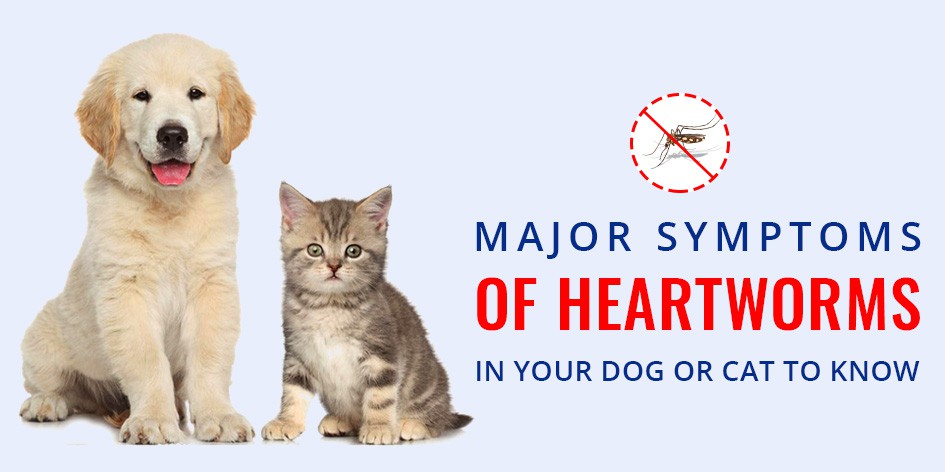A responsible pet parent provides the best care to their pets and tries to keep them free from dangerous infections. In spite of great care pets are infected by many parasites. Among many parasitic infections in furry pals, heartworm is the most dangerous. Heartworm infection can create a huge trouble for your pet whether it’s a cat or dog. So, it is necessary for you to understand this problem in a proper way. Let us find here how your cat or dog can get this heartworm infection, and what are the signs and symptoms of this infection.
Heartworms in Dogs
The heartworm infection is passed on to dogs by a mosquito bite. When a mosquito bites an infected animal, it ingests the immature heartworm. This immature form of heartworm is known as microfilaria, which develops into infective larvae inside the mosquito within two weeks. When this mosquito bites an uninfected dog, it transmits the infective larvae into the dog’s body. It takes approximately 6 months for larvae to mature into adult heartworm. As the worms develop into mature heartworms, it travels through the dog’s body reaching the blood vessels and infect the blood vessels by damaging it. Damaged blood vessels decrease the pumping of heart. Slow pumping of heart triggers the lung and heart disease.
Symptoms Of Heartworms In Dogs
It is quite difficult to detect the symptoms at an initial stage. As the time passes symptoms can be seen such as
- Difficulty in breathing
- lethargy
- Weight loss
- Dry cough
Important Things To Remember
It is recommended to keep your dog on a preventive measure. Before going for a preventive treatment, it is necessary to consult your vet to conduct a test for heartworm infection.
Heartworms in Cats
Many people have false assumption that only dogs are prone to heartworms. Cats can also be infected with heartworms. The rate of heartworm disease in unprotected cats that are not under preventive measures is significantly less compared to unprotected dogs. In addition, the size of the worms infecting cats are small and have shorter life span compared to worms affecting dogs. Outdoor cats are more likely to get heartworm infection than indoor cats.
Heartworm disease is little different in cats than in dogs. In most cases, it has been observed that the most of the heartworms don’t survive until adulthood in cats. An infected cat has only one to three adult heartworms. Though, it is a positive thing still sometimes, it is hard to diagnose the heartworms in cats. Some heartworms, which are not fully grown, can create a condition called heartworm associated respiratory disease.
Symptoms Of Heartworms In Cats
Symptoms of heartworms infection in cats range from a mild to major. Which are as follow:
- Coughing
- Dyspnea- Raspy breathing
- Vomiting
- Weight loss
- Lack of appetite
The most common symptoms of a cat with chronic heartworm infection are respiratory issues and vomiting.
To protect your four-legged companion from this dangerous disease, preventive treatment program is the best way to keep your pet safe and healthy against this disease.
Buy Heartworm Medicine For Dogs Online

